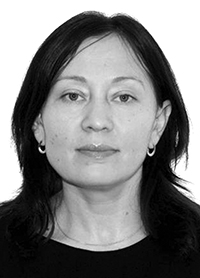Philosophical meanings of physical (body) culture
Keywords:
physical culture, body culture, physical culture philosophy, motor activity philosophy, body beauty cult.Abstract
Objective of the study was to analyze the body culture philosophy progress history in the axiological context.
Methods and structure of the study. We used the following key research methods: philosophical, ideological and socio-cultural analyses of the corporeality concept, physical/ body culture and physical culture since antiquity through the middle ages to nowadays.
Results and conclusion. Our philosophical, ideological and socio-cultural analyses of corporeality and body / physical culture give a historic overview of the concepts of physical education in their evolution.
Ancient philosophers were among the first to analyze human body culture, with the most focused and comprehensive analyses found in the heritage of Plato and Aristotle.
There is a growing need for further development of philosophical conceptions of body culture in view of the traditional and new mass media and blogosphere being increasingly engaged in the body beauty cult for the last decade. The popular interests are not limited by the diets and sporting lifestyles as such; but rather focused on a virtual body shaping up by the mass media toolkit. The efforts to "create" a beautiful (and real) body to present it on Instagram are contributed by the beauty industry experts that offer a range of services to shape up any body; whilst virtual bodies with their presentations are unlimited in fact, with the modern software filters available to make up every drawback and underline every benefit. A real human being in this virtual environment often loses its identity to evolve into a sort of ‘ideal carrier’ of a set of optional bodily parts including lips, eyes, nose, etc.; with the human body viewed as a kind of investment asset or frame lacking any individuality.
References
Akvinskiy F. Teaching about the soul. Moscow: Azbuka-klassika publ., 2004. 480 p.
Asmus V.F. [ed.] Aristotle. Works: in 4 volumes. Moscow: Mysl publ., 1976. V. 1. 550 p.
Bakhtin M. Creativity of Francois Rabelais and folk culture of Middle Ages and Renaissance. Moscow: Khudozh. lit. publ., 1990. 543 p.
Yeger V. Paideia. Upbringing an ancient Greek. Transl. from Germ. By M.N. Botvinnik. Moscow: Shichalin Greco-Latin office, 1997. V. 2. 336 p.
Platon. Plato. State. Moscow: AST publ., 2016. 448 p.
Russo Zh.-Zh. Selected woks. In 3 vol. Moscow: Knizhny Klub Knigovek publ.. 2018. V. 2. Emil, or on education. 736 p.
Russian Dictionary. in 4 volumes. RAS, Institute of linguistic research; A.P. Evgenyeva [ed.]. 4th ed., ster. Moscow: Rus. yaz.; Poligrafresursy publ., 1999. 702 p.
Stolyarov V. Philosophy of sports and human physicality. In 2 vol. Kn. 1. Moscow: Universitetskaya kniga publ., 2011. 766 p.

Published
Versions
- 03-01-2022 (4)
- 19-12-2021 (3)
- 19-12-2021 (2)

